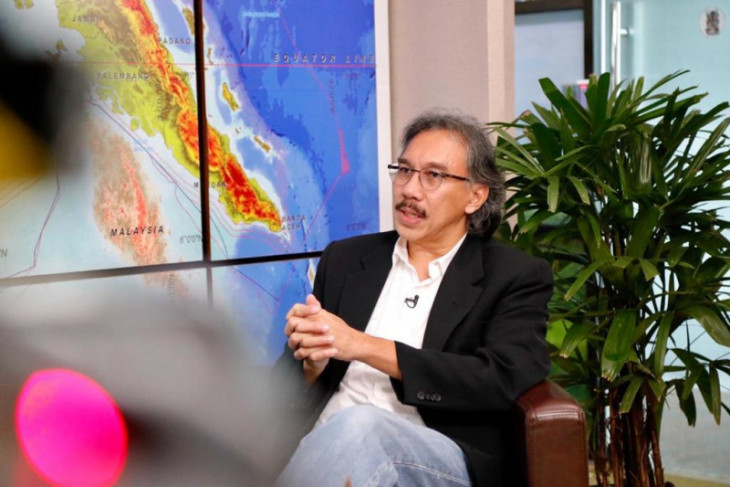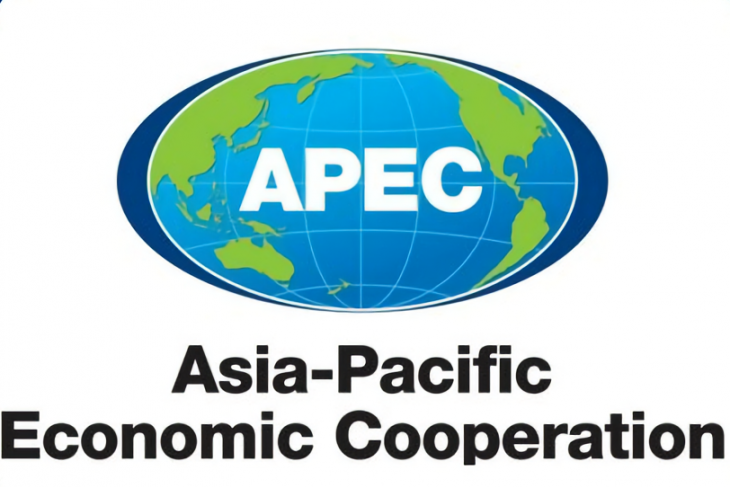Live Streaming
Program Highlight
Company Profile

Ani Hasanah
Indonesia Presses for Strict Actions against Racially Spurred Violence
Indonesia demanded firm actions to be taken against racially incited violence during an urgent debate on racism organized by the United Nations Human Rights Council in Geneva, Switzerland.
The urgent debate on "racially inspired human rights violations, systematic racism, police brutality and the violence against peaceful protests" was held on Wednesday at the request of African nations in the wake of rising racial violence in the United States (US), particularly the death of George Floyd, an African American, that fueled huge protests across the US and drew global attention.
Ambassador Hasan Kleib, Indonesia's permanent representative to the United Nations, the World Trade Organization, and other International Organizations, voiced his concern over acts of violence and discrimination occurring in various parts of the world, particularly those caused by rising racial hatred or hate-based crimes.
Kleib put forth a suggestion for the Human Rights Council and the High Commission on Human Rights to bolster cooperation to end racial discrimination and violence during the law enforcement process, the Indonesian Permanent Mission in Geneva noted on a statement received in Jakarta on Thursday.
Actions proposed by Indonesia encompass respect and tolerance for racial and ethnic differences at the community level; bolstering the legal culture and accountability of legal institutions; and education on human rights in education institutions for police and other law enforcement by involving the National Human Rights Commission or other relevant state institutions.
In addition to speaking on behalf of Indonesia, Kleib also delivered joint statements on behalf of the Core Group of the Convention Against Torture Initiative (CTI).
Representing CTI nations, Indonesia urged for zero tolerance towards racism and discrimination and drew attention to the significance of law enforcement policies that are people-centric and oriented towards preventing violence.
The Indonesian foreign policy has always centered on anti-racism since the inception of the Republic of Indonesia.
Indonesia, under the leadership of President Soekarno, had built awareness with the Asian-African countries against the practice of colonialism through the holding of the 1955 Asian-African Conference (KAA).
The KAA produced the Bandung Declaration, in which one of its precepts called for abolishing racism.
"Under the spirit of the Bandung Declaration, Indonesian human rights diplomacy certainly continues to take affirmative steps to eliminate all forms of discrimination on all fronts," Ambassador Kleib stated.
As a multi-ethnic and multiracial nation, Indonesia will keep striving to advance the spirit of anti-racism as one of the unifying pillars among developing countries.
In the urgent debate, the UN Human Rights Council also heard a video message from Philonise Floyd, George Floyd's younger brother, who supported the Human Rights Council to establish a commission of inquiry for the killing of black people by police in the US. (ANTARA)
June

Deputy for Coordination of Infrastructure and Transportation of the Coordinating Ministry for Maritime and Investment Affairs Ridwan Djamaluddin. ANTARA/HO-Ministry for Maritime and Investment Affairs/sh
The Indonesian government will go ahead with the development of priority infrastructure projects despite the state budget reallocation for COVID-19 handling, according to the Coordinating Ministry for Maritime and Investment Affairs.
"The government's budget is largely allocated for COVID-19 handling. However, it does not mean that the development of infrastructure must be stopped, as this project is aimed at meeting the public's long-term needs," Deputy for Coordination of Infrastructure and Transportation Ridwan Djamaluddin noted in Jakarta on Thursday.
Djamaluddin elaborated that infrastructure development was aimed at maintaining productivity that will further facilitate the creation of jobs for the public.
"That is the essence of infrastructure development. Hence, this must be continued. Some projects might have to be rescheduled, and we proceed with priority projects. However, clearly, we will continue the infrastructure projects, especially those that offer strategic benefits to the public," he remarked.
Djamaluddin cited as an example the development of an airport in Papua that must be completed despite its less economic benefits, as supporting the distribution of logistics and public mobility are of paramount importance.
"Although it offers less economic benefits, (the airport) will be necessary for people in the region for distributing logistics and facilitating greater public mobility," he stated.
Indonesia currently has 223 national strategic projects worth around Rp4.2 quadrillion on its priority list that has been revised several times since 2016.
The country completed 92 infrastructure projects during the 2016-2019 period, against the 144 projects that the Committee for Acceleration of Priority Infrastructure Delivery (KPPIP) had targeted to complete by 2020.
President Joko Widodo recently drew attention to the fact that despite the COVID-19 pandemic weighing down heavily on Indonesia, the development of national strategic projects must continue while abiding by the relevant health protocols.
The head of state also instructed to accelerate programs that can drive the people’s economy, such as land certification, Indonesia’s transmigration program concerning legalization of land, and the social forestry programs.
Public Works and Public Housing Minister Basuki Hadimuljono stated that groundbreaking for several toll road projects will break ground this year, including the 14-kilometer (km) section 4 of the Banda Aceh-Sigli toll road, the 33-km sections I and V of the Balikpapan-Samarinda toll road, and the 131-km Pekanbaru-Dumai toll road. (ANTARA)
June

Plans for recovery from the COVID-19 pandemic must not only help improve public healthcare, but also build environmental sustainability, an APEC Policy Support Unit researcher said, urging member nations to work towards a "greener new normal”.
Researcher Satvinderjit Kaur Singh made the appeal in a written statement issued by the APEC Policy Support Unit, which was received in Jakarta on Wednesday.
According to the World Health Organization (WHO), unhealthy environments — due to contaminated air, soil, and water — cause an estimated 12.6 million deaths on a yearly basis.
A major source of these pollutants is the global waste crisis which threatens millions of businesses and livelihoods, especially in developing economies.
Tearfund, an international poverty charity, estimates that between 400 thousand and one million lives are lost in developing economies due to poor waste management.
"Hence, it is important that we work towards a greener and cleaner future in our new normal," Singh stated.
She argued that an effective way to tackle the waste crisis is through the adoption of the circular economy -- a system in which resources are used to their maximum extent before being disposed.
"The circular economy minimizes waste by reusing, repurposing, remanufacturing, and recycling used products. This allows consumed resources to re-enter the production chain. Through better management of resources and reducing waste, over-extraction and over-production of goods can be prevented," she said.
The waste issue is pertinent in the APEC region as well, she pointed out. Data from the World Bank projects a 36-percent growth in solid waste generated in APEC economies between 2016 and 2050.
An average resident in the region is expected to generate 1.1 kilograms of waste daily by 2050. This problem is further aggravated as the majority of waste in APEC is mismanaged and ends up harming the environment, industries, and livelihoods.
The COVID-19 pandemic has exacerbated the waste crisis, Singh said. Surplus food produced is often dumped, single-use items have become prevalent, and use of takeaway food packaging has skyrocketed due to lockdowns, she noted.
"Nevertheless, the pandemic has also given us an opportunity to rethink our ways. We cannot go back to business as usual. Continuing to deal with each impending crisis with the same unsustainable economic model is a recipe for disaster," Singh averred.
She further explained, while short-term fiscal measures will help soften the impact, long-term shocks to the system will continue to test our capacities.
Threats to the environment are far more permanent and deep, hence sustainability strategies for the future should not take a back seat despite the challenges posed by COVID-19, she cautioned.
Circular practices are already in place to deal with supply-chain disruptions. For example, businesses are repurposing scrap fabrics to manufacture personal protective equipment, and the food and beverage sector is working with other organizations to redirect surplus food to the needy.
Similarly, innovations continue to support current shortages and future green transitions. For instance, technology is being used to decontaminate N95 masks and responsible packaging innovations continue to provide for sustainable options during home delivery spikes.
Therefore, it is important for economies to recognize the threats of the waste crisis and develop recovery packages that can deliver on both environmental and economic goals, Singh said.
"The circular economy should be built into the 'new normal' to enhance the region’s sustainability and resilience. APEC considers the circular economy to be an important factor in pursuing sustainable development in the region," she continued.
"While the pandemic has become our foremost concern this year, APEC should still pursue long-term priorities like environmental sustainability, which will be key in rebuilding a stronger economy after the health crisis subsides. More work in this area will help build a healthier environment for all," she stated. (ANTARA)
June

A permanent exhibit displayed on the second floor of Building B at the National Gallery of Indonesia in Jakarta.
The National Gallery of Indonesia in Jakarta has been reopened to public from Tuesday, June 16, 2020, with several health protocols in place in view of the COVID-19 pandemic.
With the Indonesian capital transitioning from Large-Scale Social Distancing (PSBB) measures to the new normal, it is one of the art galleries that citizens can now visit after being stuck at home for almost three months.
Visitors will only be allowed to view a permanent exhibit of the National Gallery's collection, displayed on the second floor of Building B, while complying with new health protocols.
"Our new (visitor entry) procedure aims to ensure the safety and comfort of anyone coming here," head of the National Gallery, Puspanto, said in a statement received on Wednesday.
The staff at the gallery have been provided personal protective equipment and thermometers. Public areas within the complex building are being cleaned more often, while sinks and hand sanitizer dispensers have been installed at several spots, he explained.
Those planning to visit the gallery will now have to register themselves beforehand. Visitors making online registrations (at least 24 hours prior to the visiting time) will have to furnish the confirmation email at the entrance. On-site registrations are also being taken to allot visiting times.
Registered visitors will be required to reach the gallery at least 30 minutes before their session begins to allow time for the verification process. Besides this, visitors would need to be in good health, wash hands and don masks, and bring few belongings as the deposit counter has been closed, said Puspanto.
The National Gallery will be open from Tuesday to Friday, 9 a.m to 3 p.m. It will offer about five sessions of 60 minutes duration each, with a 30-minute break. (ANTARA)


